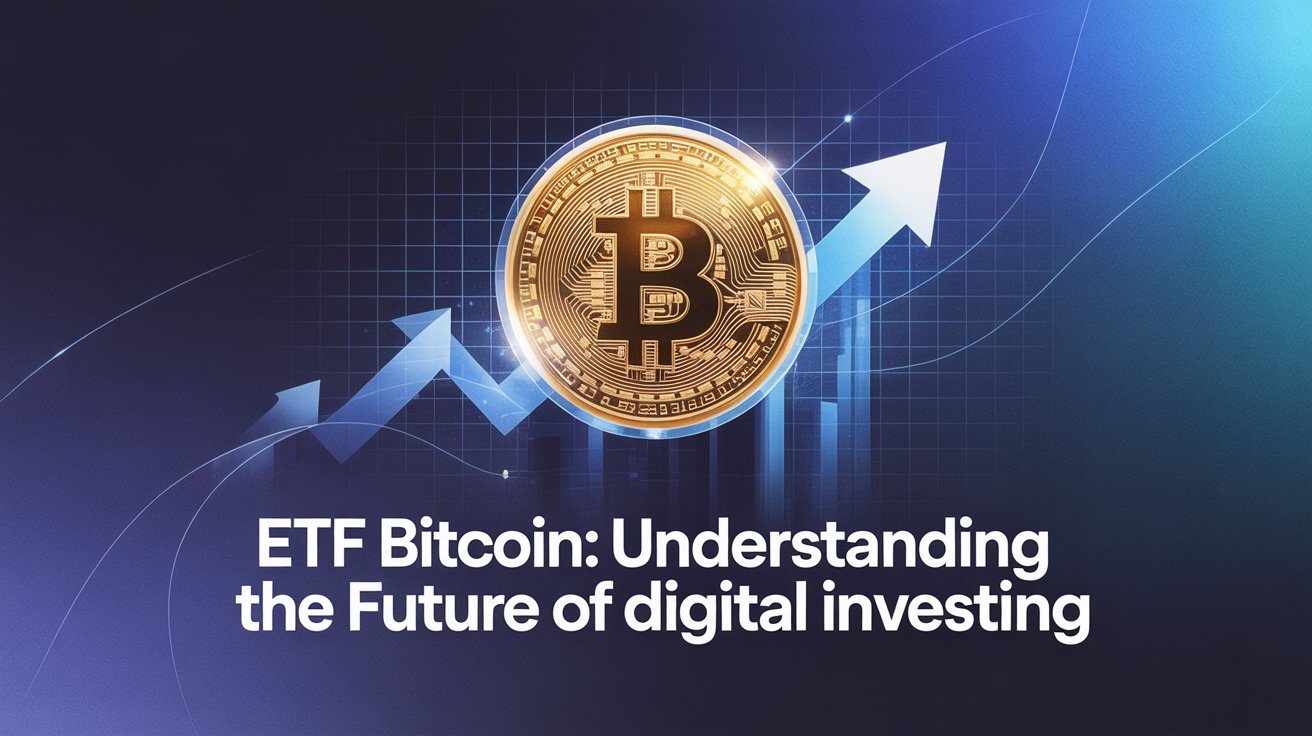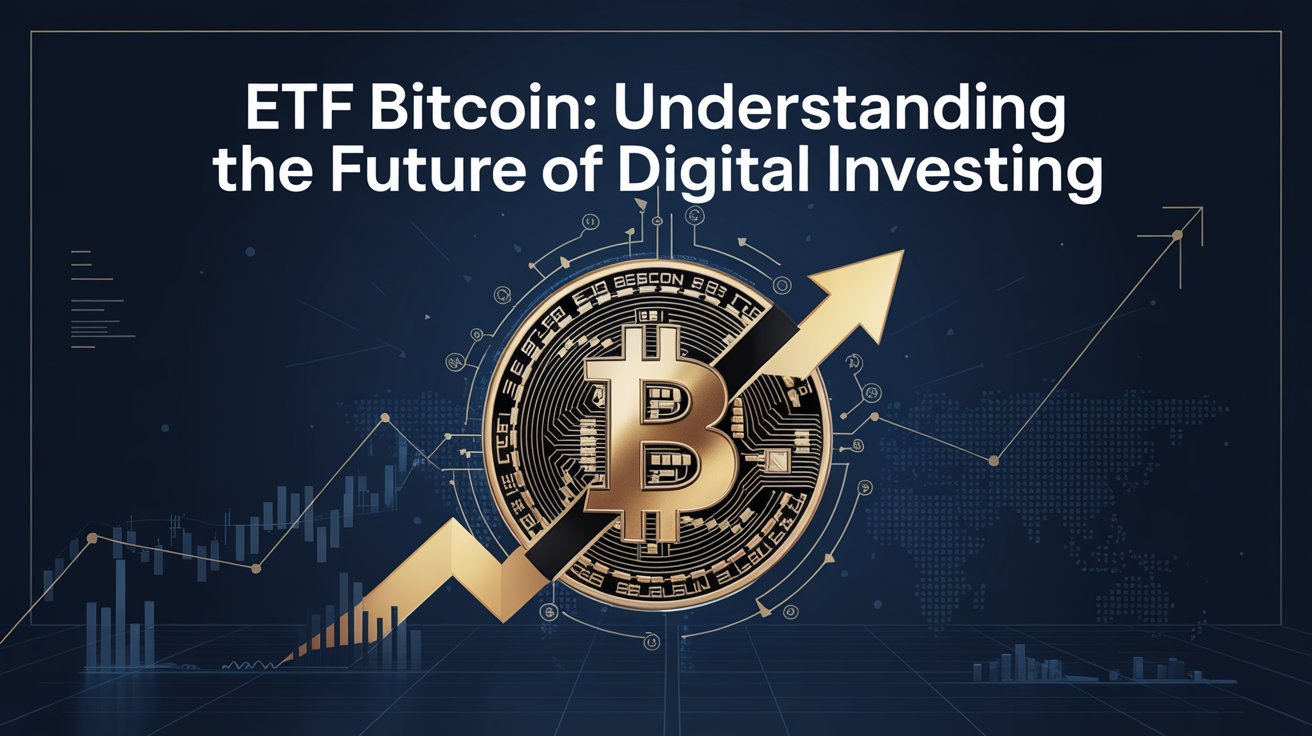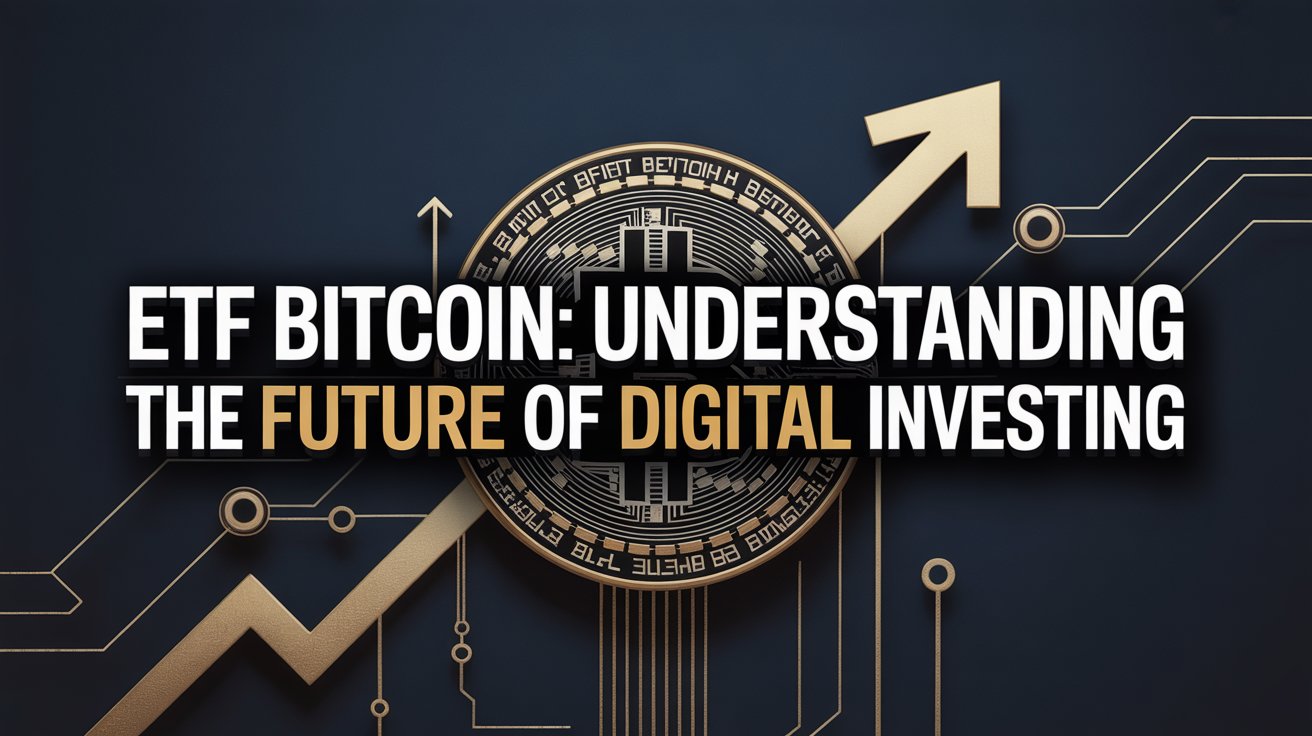The world of investing has always evolved alongside technology — from paper stocks to digital trading platforms. Now, a new evolution is reshaping how people invest in cryptocurrency: the Bitcoin ETF. You may have heard of it in the news or seen financial experts debate it on TV, but what exactly is it, and why is it creating such a buzz?
In this article, we’ll explore Bitcoin ETFs in simple terms, breaking down what they are, how they work, and what they mean for everyday investors. Whether you’re new to cryptocurrency or already familiar with digital assets, this guide will help you understand this exciting financial innovation.
What Is a Bitcoin ETF?
A Bitcoin ETF (Exchange-Traded Fund) is a type of investment fund that tracks the price of Bitcoin. Instead of buying Bitcoin directly, investors buy shares of the ETF — just like they would with a traditional stock.
Think of it like this: owning a Bitcoin ETF is like owning a ticket that represents a portion of Bitcoin’s performance, without needing to store or secure the digital coins yourself.
This structure allows people to gain exposure to Bitcoin without the technical complications of managing wallets, private keys, or navigating crypto exchanges.
How Does a Bitcoin ETF Work?
At its core, a Bitcoin ETF functions like any other exchange-traded fund. It’s traded on major stock exchanges and can be bought or sold throughout the trading day.
Here’s the process in simple terms:
-
The ETF Provider (like BlackRock or Fidelity) purchases and stores Bitcoin.
-
Shares of the ETF are issued to investors.
-
The ETF’s share price moves up or down in relation to Bitcoin’s market value.
This means if Bitcoin’s price rises, so does the ETF’s value, allowing investors to benefit from price gains — all through a familiar and regulated investment structure.
The Rise of Bitcoin ETFs: A Brief History

Bitcoin ETFs didn’t appear overnight. For years, companies and financial institutions tried to launch them, but regulators were cautious.
The U.S. Securities and Exchange Commission (SEC) initially rejected multiple applications, citing concerns about market manipulation and investor protection. However, as cryptocurrency markets matured and regulatory oversight improved, things began to change.
In 2021, the first Bitcoin futures ETF was approved in the U.S. This ETF didn’t hold actual Bitcoin but rather futures contracts linked to its price.
Then, in 2024, the financial world witnessed a milestone — the approval of spot Bitcoin ETFs, which directly hold Bitcoin. This approval opened the doors for both retail and institutional investors to participate in Bitcoin investing in a secure, regulated way.
Spot vs. Futures Bitcoin ETFs
To truly understand Bitcoin ETFs, it’s important to know the difference between spot and futures ETFs.
Spot Bitcoin ETF
A spot Bitcoin ETF directly owns Bitcoin. Its price reflects the real-time value of Bitcoin in the market.
-
Example: If Bitcoin is worth $50,000, and the ETF represents 1/100th of a Bitcoin, then the ETF share is priced around $500.
Futures Bitcoin ETF
A futures Bitcoin ETF doesn’t hold Bitcoin directly. Instead, it invests in Bitcoin futures contracts — agreements to buy or sell Bitcoin at a predetermined price on a future date.
-
Example: It’s like betting on where Bitcoin’s price will go, rather than owning it.
In simple terms, spot ETFs track the real thing, while futures ETFs track predictions.
Why Are Bitcoin ETFs So Popular?
The appeal of Bitcoin ETFs lies in their simplicity and accessibility. Many people are curious about Bitcoin but hesitant to invest due to security and regulatory concerns.
Here’s why ETFs change the game:
-
Ease of access: You can buy Bitcoin ETFs using a standard brokerage account.
-
Regulated environment: ETFs are subject to financial regulations, adding a layer of safety.
-
No need for crypto wallets: Investors avoid dealing with digital wallets or private keys.
-
Diversification: ETFs can be part of a broader investment portfolio.
For many, this makes entering the world of cryptocurrency much less intimidating.
The Advantages of Investing in Bitcoin ETFs
Bitcoin ETFs offer multiple benefits to investors, especially those new to digital assets.
1. Simplicity and Convenience
You don’t need to understand blockchain or crypto exchanges. You can buy shares like any stock on your brokerage platform.
2. Transparency and Regulation
ETFs operate under strict financial regulations, ensuring more transparency and investor protection compared to unregulated crypto exchanges.
3. Tax Efficiency
ETFs often offer favorable tax structures, making them more efficient for long-term investors compared to directly trading Bitcoin.
4. Liquidity
Bitcoin ETFs can be traded anytime during market hours, providing flexibility similar to stocks.
The Risks and Challenges

Of course, no investment is without risks — and Bitcoin ETFs are no exception.
1. Price Volatility
Bitcoin’s price is known for its sharp ups and downs. ETFs tracking Bitcoin will reflect these fluctuations.
2. Regulatory Changes
The crypto market is still evolving. Changes in laws or regulations could affect Bitcoin ETF performance or availability.
3. Management Fees
ETF providers charge a small fee for managing the fund. While usually minimal, it’s worth noting for long-term investors.
4. Market Manipulation Concerns
Despite regulation, Bitcoin’s decentralized nature still leaves room for price swings driven by market sentiment.
Institutional Interest in Bitcoin ETFs
Major financial institutions have shown growing interest in Bitcoin ETFs. Companies like BlackRock, Fidelity, and Ark Invest have launched or applied for Bitcoin ETFs, signaling that traditional finance is embracing digital assets.
This institutional involvement boosts Bitcoin’s credibility and helps bridge the gap between old and new forms of investing.
When banks and large investment firms buy into Bitcoin ETFs, it’s like a stamp of approval for the crypto market — showing that digital assets are here to stay.
How to Invest in a Bitcoin ETF
If you’re thinking about investing, the process is straightforward.
-
Open a brokerage account: If you don’t already have one, choose a platform that offers ETF trading.
-
Search for Bitcoin ETFs: Examples include BlackRock’s iShares Bitcoin Trust or Fidelity Wise Origin Bitcoin Fund.
-
Decide your budget: Only invest what you can afford to lose — crypto remains volatile.
-
Buy shares: Once you place an order, the shares are added to your investment portfolio.
That’s it — no digital wallets, no complex transactions, just a few clicks.
The Future of Bitcoin ETFs
The approval of Bitcoin ETFs marks a turning point for the cryptocurrency industry. Analysts believe it could attract billions in new investments, as both institutions and individuals gain easier access to Bitcoin exposure.
We might even see new types of crypto ETFs — tracking Ethereum, Solana, or diversified crypto baskets — allowing investors to explore the broader digital economy.
As adoption grows, Bitcoin ETFs could become as common as gold or tech ETFs in traditional portfolios.
The Broader Impact on the Financial World

Bitcoin ETFs are not just about convenience — they represent a shift in how the world views money and investment.
Traditional finance systems are merging with blockchain technology, creating a hybrid future where digital and traditional assets coexist.
It’s like watching the evolution from cash to credit cards — only this time, it’s digital currencies reshaping how we think about value and ownership.
Common Myths About Bitcoin ETFs
Let’s clear up a few misconceptions:
-
Myth 1: “Bitcoin ETFs are risk-free.”
→ False. While safer than direct crypto trading, they still carry market risks. -
Myth 2: “You own Bitcoin directly.”
→ Not exactly. You own shares that represent Bitcoin’s value, not the coins themselves. -
Myth 3: “They’re only for experts.”
→ Untrue. ETFs make Bitcoin investment easier for beginners.
FAQs
1. What is the difference between buying Bitcoin and a Bitcoin ETF?
Buying Bitcoin means owning the cryptocurrency directly, while a Bitcoin ETF allows you to invest in Bitcoin’s price through a traditional stock exchange without holding the coins yourself.
2. Are Bitcoin ETFs safe?
They are safer than unregulated crypto exchanges since they operate under financial regulations, but they still carry risks due to Bitcoin’s price volatility.
3. Can I invest in a Bitcoin ETF through my regular broker?
Yes. Most major brokerage platforms now offer access to Bitcoin ETFs just like traditional funds or stocks.
4. Do Bitcoin ETFs affect Bitcoin’s price?
Yes, indirectly. As demand for ETFs increases, fund managers must buy more Bitcoin, which can drive prices up in the market.
5. Are Bitcoin ETFs a good investment for beginners?
For those curious about cryptocurrency but unsure about managing digital wallets or security, Bitcoin ETFs can be a beginner-friendly option to gain exposure safely.
Conclusion
Bitcoin ETFs bridge the gap between traditional finance and the digital frontier. They offer a secure, accessible, and regulated path for anyone curious about cryptocurrency investing.
As the financial world evolves, Bitcoin ETFs may well become a cornerstone of modern portfolios — a step toward a future where digital assets are as mainstream as stocks and bonds.
Investing always carries risks, but understanding your options is the first step toward making informed decisions. Whether you choose to buy a Bitcoin ETF today or simply watch the market unfold, one thing is clear — the future of finance is digital.










